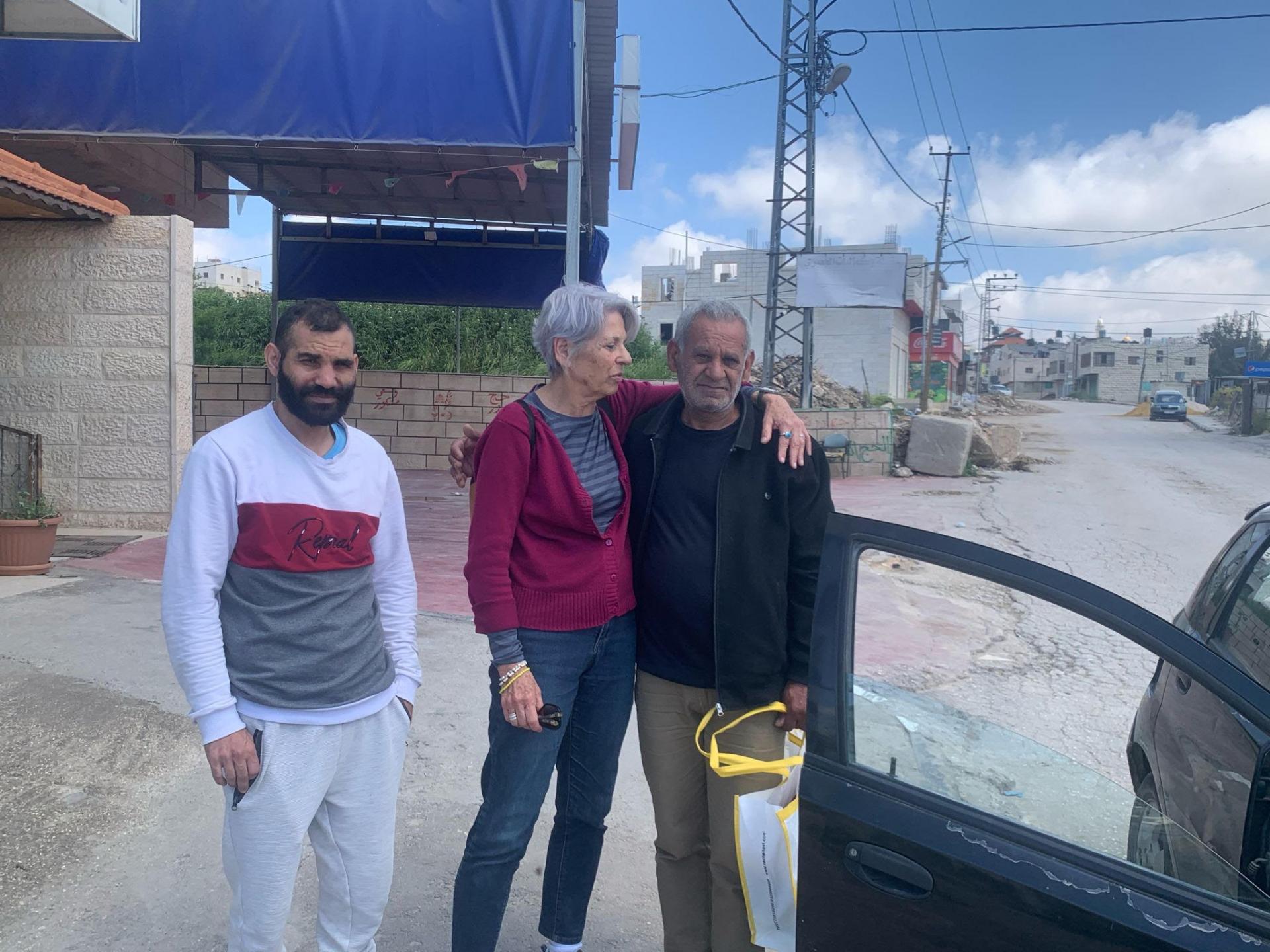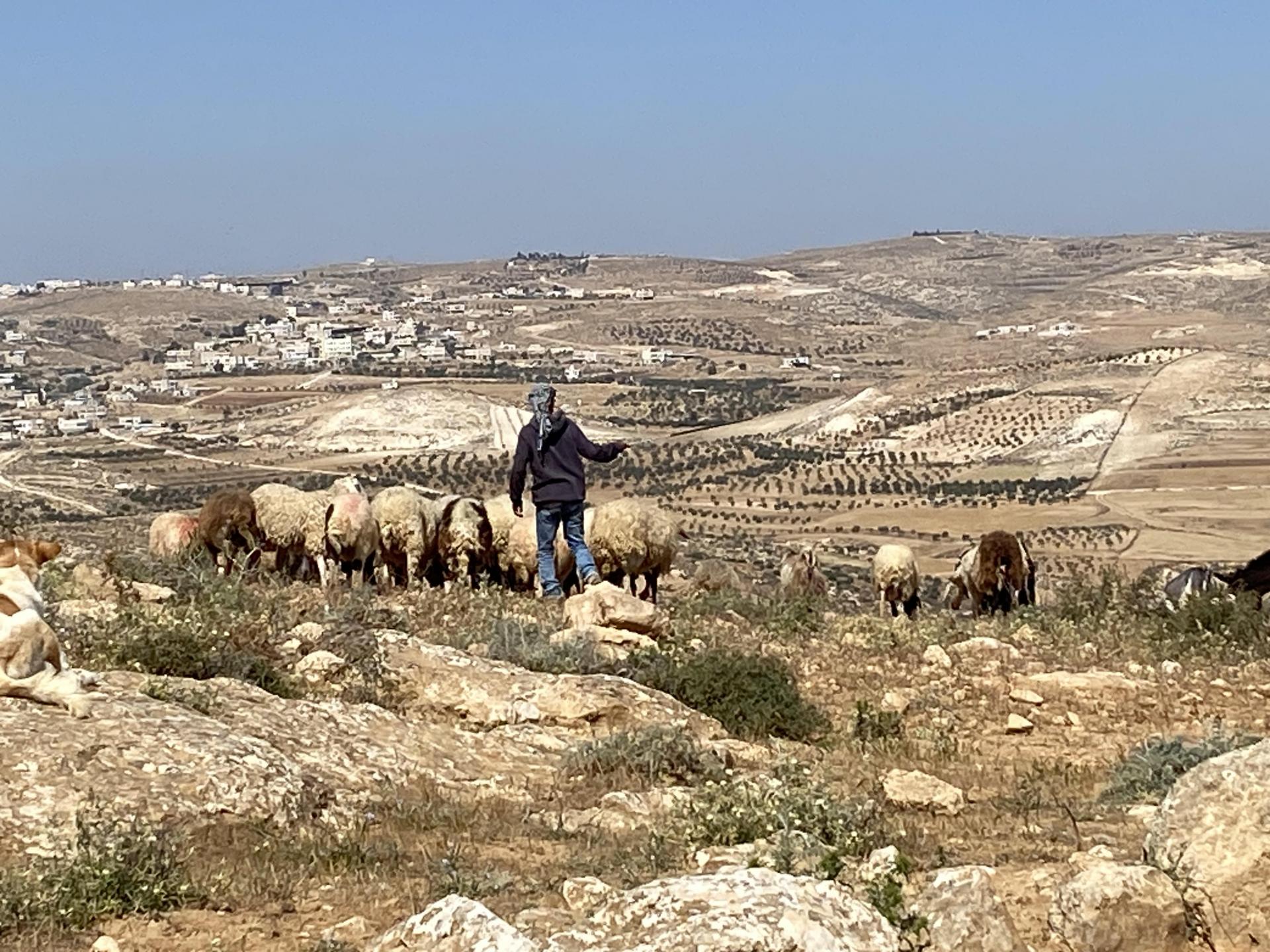Zwidin - The settler Shimon Atia herds his flock on a Palestinian wheat field
Eid al-Fitr
Yael (reporting), Eyal Shani and Muhammad (photographing); Translator: Natanya
We collected Eyal Shani from Meitar and went to Umm Al Kheir. On the dirt road from Umm Al Kheir towards Zwidin, a police car and a military vehicle from which soldiers get out with a rifle drawn. On the hill north of the road a herd of sheep is herded by children while a group of Palestinian adults who live in Zwidin argue with representatives of the army and the police. They have maps proving that these are their lands. The whole process is filmed by three peace activists who were called by the Palestinians, from Umm Al Khair.
It turned out that the Palestinian shepherds met in the wheat field they sowed, the herd of the settler Shimon Atia who recently built a stronghold on a hill in front of Zwidin and harasses the local shepherds. The Palestinians called the police and the volunteers and when we arrived a separation of forces had already taken place: the Jewish herd was driven to the south side of the road, under the handrails but in the area with the wheat field (when we arrived the herd was no longer there) while the Palestinian herd was driven to the north side, a rugged and desolate area where it is hard to find grass. The claims of the villagers and also the maps in their hands are not accepted by the police officer David, and the officer who is trying to manage the event in three languages: with the Palestinians in Arabic, in English with the volunteers, two of whom are following him filming and one is claiming illegality, and he is explaining to us in Hebrew. Eyal tries in his Buddhist way to soften the yelling officer, to offer him a compromise - to let the Palestinians harvest the poor wheat that is still left in their field on the wrong side, so that they can bring it to their sheep and the officer sends him to offer this to the military commander or the regional commander. The officer is upset that he was called repeatedly settling small disputes instead of doing their job (what exactly??). The matter ended when each of the parties was called to return to their car and leave the area, and the Palestinians were left with the hungry herd.
In Zwidin we stayed at the home of the owner of the local garage (a thriving business on the columned floor of the house) and we were impressed that the village is green, they grow fields of grass for sheep. Pastoral at the heart of the conflict.
Next stop: Shuyukh-Sa'ir junction on road 60. The two villages on both sides of the main road are closed to vehicle traffic. A locked iron gate blocks the road in Sa’ir. Those wishing to leave the village on the top of the mountain to the transport route do so either on foot or with an improvised shuttle service of private cars from the village. On a holiday, the grocery store in the village is closed and only a few festively dressed people leave the village. Route 60 is also completely empty of cars. We waited at the entrance to the village for Ahmad to hand him money collected for medical procedures on his heart that he had to undergo. Ahmad arrived hitchhiking in the stuttering car of a casual family member. He told us how much they don't celebrate their holidays, they have been under siege since the sixth of October, they cannot come to Israel for their jobs, there is no money for groceries and the atmosphere is difficult.
On the way back on the road we noticed the same closed iron gates that blocked the access of all the Palestinian villages along the road, including all the southern entrances to Hebron.
that blocked the access of all the Palestinian villages along the road, including all the southern entrances to Hebron.
The road is empty, and despair fills the heart.


